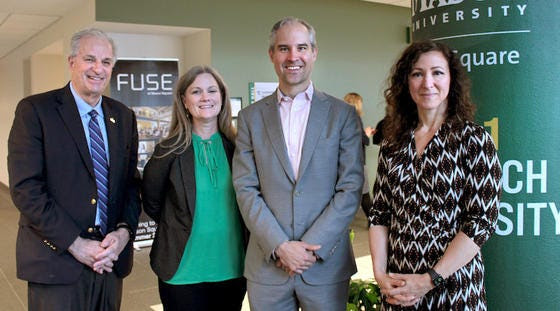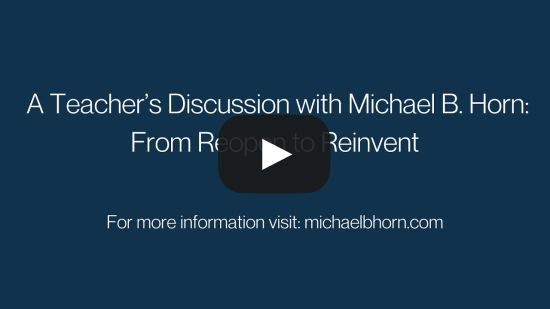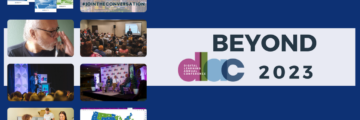مارس 17، 2023
Why M&A in Higher Ed Might Differ from that in Health Care
موردی از یک نئولیبرال... این مورد از یک استاد بازرگانی است که تجربه مستقیم کمی در آموزش دارد، اما معتقد است که اصول اقتصاد بازار آزاد پاسخی به مشکلات آموزش و پرورش (و تقریباً تمام مشکلات اجتماعی جامعه دیگر) است.
در برنامه باز کنید or آنلاین شما در لیست رایگان برای آینده آموزش و پرورش.
چرا M&A در Higher Ed ممکن است با مراقبت های بهداشتی متفاوت باشد
And… Will the Teenagers Be OK?
March Madness is in the air—from the banks to the basketball courts.
Since I last wrote a free update, we’ve released two new episodes of Future U. The first, “A Looming Wave of Mergers and Acquisitions,” addressed a topic with which, for better or worse, I’m associated—college consolidation. My prediction that at least 25% of colleges will have closed, merged, or gone through financial exigency (college’s version of bankruptcy) in the period from 2013 to 2033 (and, I’ll add, that that activity will be less dramatic than the higher ed media thinks it will) is often cited. And, as Jeff Selingo pointed out right away on our latest podcast on the topic, it’s a prediction that many thought would happen during COVID—and just didn’t.
ولی در قسمت, Sally Amoruso, chief partner officer at EAB, and Mary Ludden, who, among other roles, serves as the head of a committee that reports to Northeastern University President Joseph Aoun on merger and acquisition (M&A) opportunities for the university, told us that the conditions are now ripe for more such activity.
With that said, this isn’t your normal podcast just sharing all the macro trends that may lead to M&A. Both Amoruso and Ludden have unique perspectives on M&A informed by their work in another industry that’s often compared to higher education: health care. And in این پادکست, they point out all the reasons that higher education is distinct from that sector and others where for-profit activity leads to M&A.
Among their top reasons are:
- Lack of access to capital markets;
- Although both health care and higher education have third-party payer systems, there’s no downward pricing pressure exerted on higher education like there is in health care;
- Divergent incentives for the leaders of hospital systems versus colleges and universities.
I learned a lot from این گفتگو and suspect many of you will, too.
Will the Teens Be OK?
With new CDC data showing that more than half of teenaged girls in the United States felt persistently sad or hopeless in 2021, teen mental health is firmly in the news. With data showing that it’s not just girls who are struggling, Lisa Damour, author of the new book The Emotional Lives of Teenagers, joined us on آینده یو. to break down the struggles of teenagers and the implications for colleges and universities from admissions to graduation and beyond.
Damour is a New York Times best-selling author, cohosts a podcast called از لیزا بپرسید, and is a regular contributor to CBS News, in addition to maintaining a clinical practice in psychology. I found parts of the conversation quite reassuring and comforting—even as I certainly had more questions. Among the comforting points were that, as Lisa said, “the definition of mental health that circulates in the culture doesn’t match very well with the definition that we use as psychologists.” Blame the wellness industry perhaps, but the difference matters. As Lisa said, “Mental health is not about feeling good or happy or calm or relaxed. It’s about two things. One, having feelings that fit the moment that make sense in the context. So if we think about college students, the transition to college is wildly stressful. That is entirely appropriate. And then two, handling those feelings effectively. Handling those ways, those feelings in a way that brings relief and does no harm.”
That gives way to another important facet of this topic, and Lisa had some good thoughts on it. Check out the whole conversation—and Jeff and my takeaways from it—here at “Will the Teens Be OK?"
At the same time, there is mounting evidence that social media is really having a terrible impact on teenagers’ declining mental health (particularly girls). I joined the Fordham Institute’s Education Gadfly podcast with Mike Petrilli and David Griffith to discuss the impact of social media on kids’ mental health. I shared how I find @Jonathan Haidt’s ongoing research on the topic persuasive.
We then flipped the conversation to talk about what schools could or should do about it. My suggestions might not surprise you. Moving to mastery-based learning is critical so that we can help students build their agency (with a hat tip to ایان رو), resilience, and self-efficacy. Why? So that they can learn to embrace failure as part of the learning process, not a comparison to their peer set that dooms them. In other words, let’s teach students how to cope with challenges (just what Lisa was talking about). In my estimation, that means that schools will have to tackle the challenges of mental health, but they don’t need to necessarily do so in a way that is outside of teachers’ expertise (as Robert Pondiscio and others have warned). Instead, teachers can address these questions in an integrated way as they help students learn academic knowledge and skills. And that means making academics more, not less, rigorous in my estimation.
I also talk about why I think blanket bans on technology aren’t the way to go either and that schools must accept the fact that students are using these tools outside of school—and that schools’ job is, in part, to prepare students to use the digital devices for more substantive purposes after high school, namely for work and further education. Does that mean an individual teacher shouldn’t be allowed to ban cell phones from class? Not at all. They need that ability. But I don’t think districts or states should be making these blanket bans from on high. You can listen to our گفتگو در اینجا.
Speaking of Mastery-Based Learning
That’s a big push of course in my book, از بازگشایی تا اختراع مجدد. There was a nice feature story in my town’s local online newspaper—the Lexington Observer—about the book, which you can read here in “Covid’s Silver Lining?"
As a reminder, if you’re interested in having me speak at an event about reinventing school for every child, send me a note. Here’s a nice picture from a recent talk I gave at George Mason University as part of a two-day Dell Technologies Innovation Summit for school districts.
From left, Provost Mark Ginsberg, Dell’s Tara Nattress, Michael Horn and Dean Ingrid Guerra-Lopez. Photo by Stephanie Aaronson/OUB
And here’s a video of a recent book talk I did for a set of teachers in the Teaching Fellows Institute.
Scaling the Successes and Sunsetting the Old
Finally, on the most recent episode of Class Disrupted, Diane Tavenner and I tackled another critical question for schools seeking to innovate: how do you scale a pilot once it’s proving successful and embed it in your daily operations? And how do you sunset old practices that are no longer needed? Have a اینجا گوش کن.
مثل همیشه، از خواندن، نوشتن و گوش دادن سپاسگزارم.
LIKE
چگونه
اشتراک گذاری
هنوز نظری نوشته نشده است.
RSS خوراک برای نظرات در مورد این پست. پیگیری بازگشت URI
- محتوای مبتنی بر SEO و توزیع روابط عمومی. امروز تقویت شوید.
- پلاتوبلاک چین. Web3 Metaverse Intelligence. دانش تقویت شده دسترسی به اینجا.
- منبع: https://virtualschooling.wordpress.com/2023/03/17/why-ma-in-higher-ed-might-differ-from-that-in-health-care/
- :است
- 11
- 2021
- 8
- 9
- a
- توانایی
- درباره ما
- در مورد IT
- دانشگاهی
- پذیرفتن
- دسترسی
- اکتساب
- فعالیت
- اضافه
- نشانی
- پس از
- نمایندگی
- معرفی
- همیشه
- در میان
- و
- اندروید
- برنامه آندروید
- دیگر
- پاسخ
- نرم افزار
- مناسب
- هستند
- AS
- At
- نویسنده
- خودکار
- بان کی مون
- ورشکستگی
- بانک
- ممنوعیت
- بسکتبال
- BE
- شروع
- معتقد است که
- بهتر
- خارج از
- بزرگ
- کتاب
- شکستن
- به ارمغان می آورد
- ساختن
- کسب و کار
- by
- CAN
- سرمایه
- بازارهای سرمایه
- اهميت دادن
- دسته بندی
- CDC
- تلفن های همراه
- مرکز
- قطعا
- چالش ها
- بررسی
- رئیس
- کودک
- اشاره
- کلاس
- واضح
- بالینی
- بسته
- کالج
- کالج
- کالج ها و دانشگاه
- توضیح
- نظرات
- کمیسیون
- انجمن
- مقایسه
- مقایسه
- شرایط
- تثبیت
- زمینه
- شرکت کننده
- گفتگو
- میتوانست
- دوره
- دادگاه
- بحرانی
- فرهنگ
- روزانه
- داده ها
- داود
- رو به کاهش است
- دره کوچک و تنگ
- دستگاه ها
- دایان
- DID
- متفاوت است
- تفاوت
- دیجیتال
- مستقیم
- بحث و تبادل نظر
- متمایز
- نمی کند
- آیا
- پایین
- پایین
- نمایشی
- در طی
- اقتصادی
- ed
- آموزش
- به طور موثر
- هر دو
- در اغوش گرفتن
- به طور کامل
- قسمت
- اتر (ETH)
- واقعه
- هر
- مدرک
- تجربه
- تخصص
- شکست
- ویژگی
- باز خورد
- مالی
- پیدا کردن
- محکم
- نام خانوادگی
- مناسب
- برای
- یافت
- رایگان
- از جانب
- بیشتر
- آینده
- جورج
- دریافت کنید
- دختران
- می دهد
- Go
- خوب
- نیم
- اداره
- رخ دادن
- خوشحال
- است
- آیا
- داشتن
- سر
- سلامتی
- مراقبت های بهداشتی
- کمک
- زیاد
- بالاتر
- آموزش عالی
- بیمارستان
- چگونه
- چگونه
- HTTPS
- i
- من می خواهم
- شناسه
- تأثیر
- پیامدهای
- مهم
- in
- در دیگر
- انگیزه
- فرد
- صنعت
- اطلاع
- نوآوری
- ابداع
- در عوض
- موسسه
- یکپارچه
- تعامل
- علاقه مند
- IOS
- در iOS برنامه
- IT
- کار
- پیوست
- دانش
- نام
- رهبری
- رهبران
- منجر می شود
- یاد گرفتن
- آموخته
- یادگیری
- پسندیدن
- فهرست
- استماع
- کوچک
- زندگی
- محلی
- دیگر
- نزدیک
- خیلی
- M&A
- درشت دستور
- ساخت
- ساخت
- بسیاری
- علامت
- بازار
- بازارها
- بناء
- مسابقه
- مسائل
- به معنی
- رسانه ها
- روانی
- سلامت روان
- ادغام
- متا
- مایکل
- قدرت
- لحظه
- بیش
- متحرک
- از جمله
- لزوما
- نیاز
- ضروری
- جدید
- نیویورک
- نیویورک تایمز
- اخبار
- طبیعی
- دانشگاه شمال شرقی
- of
- افسر
- قدیمی
- on
- ONE
- مداوم
- آنلاین
- عملیات
- فرصت ها
- دیگر
- دیگران
- خارج از
- بخش
- ویژه
- شریک
- بخش
- همکار
- شاید
- دوره
- با پشتکار
- دیدگاه
- گوشی های
- تصویر
- خلبان
- افلاطون
- هوش داده افلاطون
- PlatoData
- پادکست
- نقطه
- نقطه
- پست
- تمرین
- شیوه های
- پیش گویی
- آماده
- ارائه
- رئيس جمهور
- فشار
- زیبا
- قیمت گذاری
- از اصول
- مشکلات
- روند
- معلم
- روانشناسی
- اهداف
- فشار
- سوال
- سوالات
- مطالعه
- دلایل
- اطمینان بخش است
- اخیر
- كاهش دادن
- منظم
- منتشر شد
- تسکین
- باز کردن
- گزارش ها
- تحقیق
- حالت ارتجاعی
- منابع
- دقیق
- رابرت
- نقش
- سعید
- همان
- مقیاس
- مدرسه
- دانشکده ها
- بخش
- به دنبال
- حس
- خدمت
- تنظیم
- به اشتراک گذاشته شده
- اشتراک
- باید
- نقره
- ساده
- سایت
- مهارت ها
- So
- آگاهی
- رسانه های اجتماعی
- برخی از
- اسپم
- سخن گفتن
- ایالات
- داستان
- مبارزات
- تلاش
- دانشجویان
- موفق
- چنین
- قله
- غروب
- تعجب
- سندیکایی
- سیستم های
- TAG
- Takeaways
- صحبت
- سخنگو
- معلم
- معلمان
- تعلیم
- فن آوری
- پیشرفته
- نوجوان
- نوجوانان
- نوجوانان
- که
- La
- آینده
- شان
- آنها
- اینها
- اشیاء
- فکر کردن
- فکر می کند
- شخص ثالث
- فکر
- از طریق
- زمان
- بار
- نوک
- به
- هم
- ابزار
- بالا
- موضوع
- انتقال
- روند
- زیر
- منحصر به فرد
- متحد
- ایالات متحده
- دانشگاه ها
- دانشگاه
- بروزرسانی
- us
- استفاده کنید
- نسخه
- در مقابل
- تصویری
- موج
- مسیر..
- راه
- خوب
- سلامتی
- چی
- که
- WHO
- اراده
- با
- وردپرس
- کلمات
- مهاجرت کاری
- خواهد بود
- نوشته
- شما
- زفیرنت














